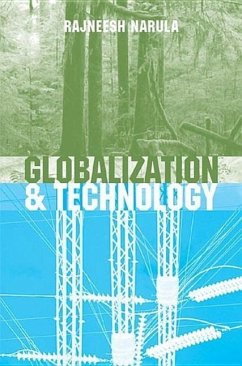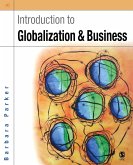Globalization and technological innovation are interdependent processes. Globalization has a fundamental influence on the creation and diffusion of technology which, in turn, affects the interdependence of multinational corporations and where they locate their activities. In this book Rajneesh Narula examines the international aspect of this interdependence at two levels: first, between sites, by examining the role of cross-border initiatives in the innovation process; second, between corporate entities, by studying the dynamics of inter-firm collaboration in research and development. Narula explores an important paradox. On the one hand, locations and corporations are increasingly interdependent through supranational organizations, regional integration, strategic alliances, and the flow of investments, technologies, ideas and people. The boundaries of both corporations and states are increasingly porous and imprecise, because businesses use alliances and outsourcing, and countries are rarely technologically self-sufficient. On the other hand, locations remain distinct and idiosyncratic, with innovation systems largely nationally bound. Knowledge creation suffers from 'inertia' and, because of the systemic nature of learning, continues to be concentrated in a few locations and firms. This book will appeal to students of business and management studies, globalization, technical change and information and communication technologies. Drawing on a wide variety of data at the corporate and national level, it also spells out important lessons for policy makers and managers concerned with industrial and technology policy, as well as those interested in the organization of research and development.
"New technologies have been the main fuel of globalization over thelast quarter of a century. This fascinating book shows what thedevices have been and, more importantly, how we can work with themto improve human affairs or the welfare of society at large."Professor Daniele Archibugi, Italian National Research Council,Rome
"One of the best analyses of the interface between globalizationand innovatory development - at both a firm and a countrylevel - I have read. A well-crafted and closely reasonedmonograph which deserves to be widely read by academic scholars andpolicy makers alike." John H. Dunning, University ofReading
"A rare fusion of analytical clarity and illustrativereadability both for the expert and the layman." Science andPublic Policy
"One of the best analyses of the interface between globalizationand innovatory development - at both a firm and a countrylevel - I have read. A well-crafted and closely reasonedmonograph which deserves to be widely read by academic scholars andpolicy makers alike." John H. Dunning, University ofReading
"A rare fusion of analytical clarity and illustrativereadability both for the expert and the layman." Science andPublic Policy








